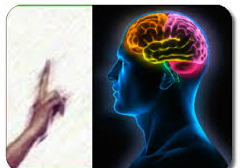What Is EMDR?
Many clients, including the public and colleagues are asking me questions about EMDR treatment for complex trauma and PTSD. I thought I would take the opportunity this week to answer a few of the questions asked.
EMDR has proven to be a powerful treatment for people who have experienced traumatic events in their lives. If you suffer of any of the below, don’t hesitate to contact myself, everyone deserves a good life and as trouble free as possible.
EMDR – Eye Movement Desensitization and Reprocessing is a powerful psychological treatment that has been used effectively for over 20 years in a variety of international settings and cultures with many different types of psychological distresses.
What Kinds of Problems Can EMDR Treat?
Scientific research has established EMDR as effective for post-traumatic stress disorder (PTSD). Clinicians have also successfully used EMDR as a treatment component in the management of:
- Depression
• Anxiety
• Panic attacks
• Personality disorders
• Complicated grief
• Dissociative disorders
• Pain disorders
• Body dysmorphic disorders
• Eating disorders
• Sexual or Physical abuse
• Performance anxiety
• Stress reduction
• Disturbing memories
• Phobias
• Addictions
How Was EMDR Developed?
In 1987, psychologist Dr Francine Shapiro made the chance observation that eye movements can reduce the intensity of disturbing thoughts, under certain conditions. Dr Shapiro studied this effect scientifically, and in 1989 reported success using EMDR to treat victims of trauma (Journal of Traumatic Stress).
These days, EMDR integrates elements of many effective psychotherapies to maximize treatment effects. These include:
- Psychodynamic
• Cognitive behavioral
• Interpersonal
• Experiential, and
• Body Centered Therapies
EMDR is an information processing therapeutic technique that incorporates an eight phase approach:
- Phase 1, 2, 3: Client History, Treatment Planning, Preparation and Assessment
• Phase 4, 5: Desensitization and Installation
• Phase 6, 7: Body Scan and Closure
• Phase 8: Re-evaluation
Why EMDR? Often disturbing events happen in our lives that stay with us. The brain cannot process information as it ordinarily does. One moment can become ‘frozen in time’ and remembering the trauma may feel as bad as going through it for the first time. This is because the images, sounds, smells and feelings still seem to be there – they haven’t changed. Such memories have a lasting negative effect that interferes with the way a person sees the world and the way that they relate to other people.
EMDR has a positive effect on how the brain processes information. Following an EMDR session, the person no longer relives the trauma. They still recall that an incident happened, but it no longer feels upsetting.
How Long Does It Take?
One or more sessions are required for the therapist to understand the nature of the problem and to decide whether EMDR is an appropriate treatment. The therapist will also discuss EMDR with you more fully and give you an opportunity to ask questions. The typical EMDR session lasts from 60-90 minutes. The type of problem, life circumstances and the amount of previous trauma will determine how many treatment sessions are necessary.
The Evidence Supports EMDR
EMDR is one of the most researched psychotherapeutic approaches for PTSD. Since 1989 over 20 controlled clinical studies have found EMDR to effectively decrease or eliminate the symptoms of PTSD for the majority of clients and it is more efficient.
The Australian Psychological Society (APS) has recently noted EMDR as a Level 1 treatment for PTSD in their recent published results for ‘Evidence-Based Psychological Interventions: A Literature Review’ (2010) for both young people and adults. This is the highest rating that can be applied to a specific therapeutic approach. Additional research has focused on use of EMDR for Depression and Anxiety and numerous other issues with extremely good results.
EMDR is also endorsed by:
- The International Society for Traumatic Stress Studies – 2009
• National Health and Medical Research Council – 2007
• American Psychiatric Association – 2004
• US Department of Veterans Affairs and Department of Defense – 2004
• Northern Ireland Department of Health – 2003
• Dutch Guidelines of Mental Health Care – 2003
• Israel National Council for Mental Health – 2002
• Clinical Division of the American Psychological Association – 1998
What Is The EMDR Session Like?
During EMDR, the therapist works with the client to identify a specific problem as a focus for the treatment session. The client then calls to mind the disturbing issue or event, what was seen, felt, heard, thought, etc. The therapist will then begin eye movements or other bilateral stimulation. These eye movements are used until the memory becomes less disturbing and is associated with a positive thought and belief about yourself.
What Are the Advantages of EMDR Over Other Treatment Approaches?
- Treatment is focused on the symptoms and conducted in session
• EMDR has comparable results to that of other trauma treatments such as exposure therapy, but over a shorter timeframe
• Studies have shown that 77-90% of clients with PTSD were able to eliminate their symptoms after 3-7 sessions of EMDR (without homework)
What Is The EMDR Association of Australia?
The EMDR Association of Australia (EMDRAA) is a member organization of psychologists, psychiatrists and other mental health practitioners who have been trained in EMDR. EMDRAA was founded in 1998 and in addition to supporting practitioners, it sets the standards for training and consultancy.
What Else Do I Need to Know?
Your EMDR practioner will be able to discuss your specific case in more detail and answer any further questions you may have about EMDR.
If you would like to read further about EMDR or make an appointment, please visit the following website Esther van der Sande Psychology Trauma Recovery Health & Wellbeing
or phone Esther on 0424 622 914.
The fee per session for EMDR is $130.00
We also accept Private Health Funds Rebates







Leave A Comment